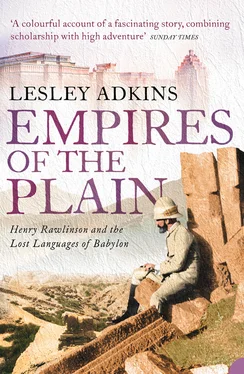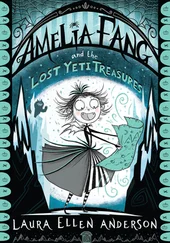After only a fortnight into the voyage, Henry was already overcoming his homesickness, as he admitted to Maria: ‘this sheet is written in a different tone from the last, but my dearest Maria, though I am now tolerably comfortable, I still and ever shall think of my absent sisters with the deepest affection and hoping they will not forget me’. 30 Towards the end of August, he published his first issue of Herald of the Deep , a weekly newspaper, copied out by hand, for the amusement of the passengers, in which he included anonymously poems that he had written. Amusements aside, Henry could not avoid the reality that he was travelling to India to join the army, whose discipline was made apparent towards the end of the journey when a private of the Dragoons was court-martialled for impudence to his corporal and received a sentence of one hundred lashes. ‘The flagillators would not cut it in tight,’ Henry noted, ‘so that the fellow got tolerably well off, never uttering a sound during the process – the punishment was nothing to what I had been led to expect.’ 31
On Friday 26 October 1827, Bombay came into view, and from now on Henry regarded the date of 26 October as very special, ‘my fatal day during all the early part of my life – especially in cycles of 6 years’. 32 As the ship approached the coast of India and the view of Bombay grew steadily clearer, Henry wrote an excited journal entry, the last of the voyage: ‘I cannot be melancholy now, but Oh! How I wish you were here to enjoy my pleasure with me – the picture is beautiful – islands, mountains, boats, ships, tents, blacks, whites, browns, greens, Oh it is lovely after 4 months of sea and sky.’ 33
Two: From Poona to Panwell
The low-lying fortified island of Bombay (now called Mumbai) was known as Bom Bahia (‘good bay’) when it was a Portuguese possession. In 1661 it became British when ceded to Charles II as part of the dowry of his Portuguese wife, Catherine of Braganza, and seven years later it was leased to the East India Company for an annual rent of £10. The city with its sheltered harbour developed rapidly as more islands were reclaimed from the marshland, and apart from the fort and esplanade, there was an extensive native town. Over two decades before Henry Rawlinson’s arrival, a fire broke out in the fort, which led to the destruction of many houses, but allowed improved rebuilding along wider streets.
Rawlinson initially attended cadet classes, but was soon attached as ensign, the lowest-ranking officer, to the 2nd European Infantry Regiment, known as the Bombay Buffs. His first military duty was Saturday 1 December 1827, when he attended the early morning muster of the regiment. The next day he agreed to accompany a shooting party, explaining to his sisters that Sundays were not regarded as a holy day of rest: ‘This day is considered here as no more than any other day with respect to shooting, playing billiards &c. Indeed it is generally pitched upon us an excursion day; notwithstanding how much your ideas of propriety may be shocked, you must not consider us at anything particular in us rising at 2 in the morning, and having sent our servants on before with lots of tuck, in starting with guns, powder and shot on a shooting excursion to Kourlee in Salsette.’ 1 They arrived just as it was light enough to begin shooting, and, wrote Rawlinson, ‘No sooner had we began to beat than four quails got up, at which of course I immediately blazed away, and running to pick up my game was rather astounded at perceiving the effect of my shott in a group of beaters … lying prostrate and bleeding on the ground – they had just left the road to begin beating, and being hidden from my sight by a thin bush received the whole contents of my charge to their no slight confusion and dismay – only one was hurt at all seriously, who had about a dozen shot a few inches in his legs and face – however he was speedily reconciled to his condition by a douceur of 2 rupees.’ 2
This was the first time Rawlinson had seen anything of the Indian countryside, which to him appeared ‘extremely prepossessing. The woods were filled with birds of the brightest colours and butterflies of a magnitude which [would] rather surprise Georgiana.’ 3 Wildlife abounded, and conservation was never an issue, only the sport. The day’s shooting was fairly successful, and Rawlinson told his sisters: ‘The following items compose my days sport – 6 beaters, more or less damaged, 3 black pigeons, one splendid kingfisher, one muena (a most beautiful blue and scarlet bird), one hoopooe, 2 quails both lost in the long grass, one hawk, one rook, one gull, one paddy bird and eight sand snipers – we were much disappointed at not meeting with any partridges … We had lots of beer and returned home very merry at about 9 oclock at night racing our buggies all the way.’ 4 At the age of seventeen he found himself in an exotic world where he wielded power even as the lowest-ranking officer and, compared to the indigenous population, immense riches – for an immature young man it was intoxicating.
Military activities for Rawlinson in India were not onerous, though he studied with a native language teacher (a munshi ). The day after his excursion he declared himself ‘too lazy to do much with my moonshee’. 5 Instead, he went pigeon shooting with his friends Hogg and Philipps: ‘I backed every shot of mine against theirs at a rupee a shot and after about two hours shooting I came off a winner of fifteen rupees … I rode my horse in the evening being the first time for this last week as he has been in physick – saw a good many cronies on the Esplanade and dealt out a little nonsense to my friend Mrs Hull, by far the prettiest lady there.’ 6
Next occurred an event that threatened his future in the army: ‘Met Brown who asked me to dine with him at seven which I accordingly did, found a party of 8 jolly fellows assembled at dinner and spent the pleasantest evening I ever did since I have been here – lots of Claret, Beer, Punch – and sallying out for a lark at about 10 oclock, commenced levelling all the tents in the vicinity – it was glorious fun, but I am afraid we shall get into a terrible row about it. I am always exceedingly sorry after such parties that I have made myself such a fool, yet I have not sufficient resolution to resist the temptation of attending them.’ 7 The following day an official complaint was made of their behaviour, and Rawlinson was dismayed at the possible outcome: ‘there seems every probability of our being brought to a Court Martial and dismissed the service. I am really quite disgusted with the world now – if I am now really cashiered for such a trifling offence, I shall immediately tell the fellows who prosecute that they are no gentlemen and if they shoot me they may – if I survive I shall enter into the King of Persia’s services and try if I cannot make some figure in the world there. India is too narrow a field for my ambition – everything here goes by interest and it is impossible to get into notice unless patronized by some of the Grandees. I cannot bear the idea of creeping unknown through the world.’ 8 To his relief, no more was heard of the court martial and he vowed never to get drunk again.
By now Rawlinson was hoping to receive letters from home, but was bitterly disappointed when the Upton Castle came in. ‘Out of sight, out of mind,’ he complained, ‘I suppose I am now entirely forgotten by all my friends in England … I have [made] minute enquiries and find that there is no letter, packet or parcel of any description, come out for me by the Upton Castle, which has not only surprised but greatly annoyed me as I did not expect to be forgotten quite so soon as it appears I am.’ 9
The following Sunday he marched to church with the regiment, but was not impressed with the service: ‘Carr the clergyman gave us a terrible long sermon about Serjeant Tedman who has lately “gone out”. The deaths here are really quite awful.’ 10 Among Europeans in India the death rate was especially high, from causes such as malaria, cholera, dysentery, smallpox, dog bites, snakes and scorpions. Because of these threats, Rawlinson considered a new career in England: ‘I am frequently resolved to adopt an entirely new course of life, to give up all the future prospect of glory and delight, which I have so often and so fondly pictured to my ardent mind, and turn religious. I used at one time certainly to be really pious and in a fit state to be called into the presence of my maker, but I was then a child, I was then a stranger to the temptations of the world and had then never experienced what I am afraid I shall never have sufficient strength and resolution to withstand.’ 11 He had little regard for Carr, adding: ‘I am not as yet sufficiently under the influence of the Spirit of God to relish three hours prosing controversy on disputed texts … I hope and trust I may in time acquire the power of abstracting my mind in prayer which for any length of time, I find at present particularly difficult.’ 12 The subject of religion was a recurring topic in Rawlinson’s early journals, and it obviously bothered him that, as a Christian, his beliefs were not as strong as he wished.
Читать дальше












